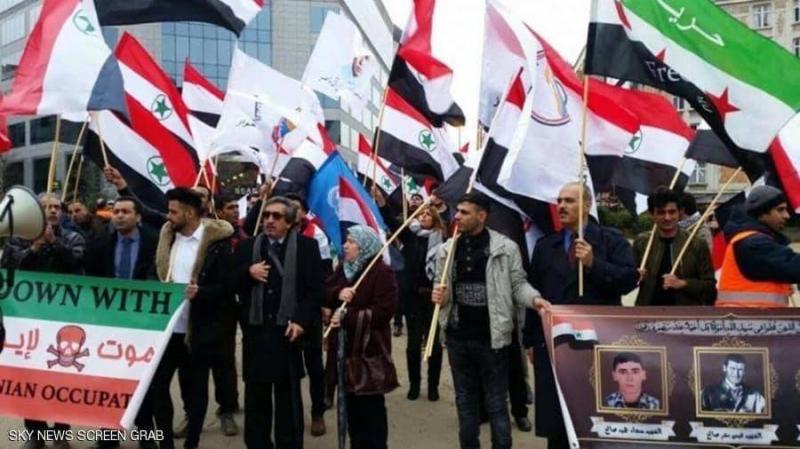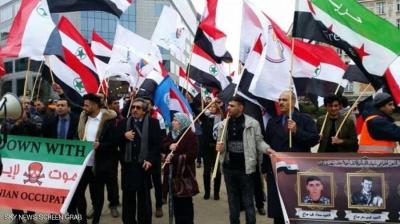Under the title "Mother Tongues Ignite New Wave of Anger Towards Tehran," Sky News reported that from the northern Azerbaijan province to the southern Ahvaz, and the western Kurdistan to the eastern Baloch, Iran is witnessing a state of anger from demographic groups referred to as "non-Persian peoples," who are demanding the teaching of their own languages with the start of the new school year. These languages include Turkish for Azerbaijanis, Kurdish for Kurds, and Arabic for Ahvazis.
This anger was manifested in recent events in Azerbaijan, Ahvaz, and Kurdistan where there were calls for allowing their languages in government circles, official communications, and educational curricula, including hunger strikes and online campaigns. Article 15 of the Iranian constitution states that Persian is the only official language of the state for textbooks, communications, and documents, while allowing local and ethnic languages to be used in the media and to be taught in schools.
Article 101 of the Citizenship Rights Charter affirms that "citizens have the right to learn, use, and teach their local language and dialect," but this has not been implemented in schools. Activists from non-Persian peoples rely on international agreements that demand the teaching of languages they describe as "minorities," including the United Nations Convention on the Rights of the Child from 1989.
The government rejects the teaching of these languages out of concern that it may encourage separatist sentiments. In this regard, a member of the Academy of Persian Language and Literature, Farahollah Mojtabai, described the demand as a conspiracy, stating, "I have no doubt that this issue has come to Iran from abroad."
Accurate statistics on non-Persian peoples are not available, but according to the Iranian National Electronic Services Portal, 25% of Iranians speak Turkish, 7% speak Kurdish, and 6% speak Arabic, Balochi, or other languages.
#### Hunger Strike
Azerbaijani activists Ali Reza Farshi in Greater Tehran Prison and Abbas Lisani in Ardabil Prison have gone on hunger strike to demand the teaching of the Turkish language in the Azerbaijan region of northwestern Iran. Farshi has been arrested several times due to his cultural activities and efforts to teach Turkish, receiving a 3-year and 6-month prison sentence for "threatening national security" and 8 months for "propaganda against the regime." Similarly, Abbas Lisani has a history of arrests for supporting Azerbaijani identity, including being detained in 2018 for "organizing a group to undermine national security" and receiving a 15-year prison sentence.
"Iranian Turks" or "Azerbaijanis" are the largest non-Persian ethnic group in Iran, with Turkmen, Qashqai, and Uzbek also included.
#### Online Campaigns
Activists from Arab Ahvaz launched an extensive online campaign for teaching Arabic in Ahvaz (Khuzestan) schools under the title "Studying in the Mother Tongue is My Right." Regarding the Kurds, 38 NGOs in Kurdistan wrote a letter to Tehran protesting the "exclusionary policy" against non-Persian languages. Authorities arrested Kurdish language education activist Zahra Mohammadi in 2020 and sentenced her to 5 years in prison.
#### Message to the International Community
According to Dr. Aref Al-Kaabi, head of the "Executive Committee of the Ahvaz State," "half of Iran's population, including 12 million Arabs, are deprived of their mother tongue." He adds to Sky News Arabic that 40% of Arabs in Ahvaz do not speak Persian because their home language is Arabic, a situation that repeats itself in Kurdish, Balochi, and Azerbaijani regions. Al-Kaabi called on the international community to pressure Iran to allow the teaching of non-Persian languages, directing a message on behalf of the "Executive Committee of the Ahvaz State" to relevant international and Arab institutions for this purpose.




